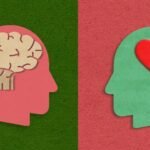The post is developed in partnership with BetterHelp.
When most people think of post-traumatic stress disorder (PTSD), they often picture a soldier who has come home from war and is struggling to adjust back to life as a civilian. While military members represent a large portion of individuals diagnosed with PTSD, they do not comprise all of those living with it.
As a serious mental health disorder, it’s crucial for those with this condition to get support and treatment as soon as possible. PTSD can impact daily functioning, affecting a person’s quality of life and happiness. There are many causes of PTSD, each of which can affect anyone throughout their lifetime. Here, we’ll explore some of these potential triggers and discuss how to get help if you or a loved one is experiencing this condition.
What Is Post-Traumatic Stress Disorder?
PTSD is a mental health disorder caused by witnessing or experiencing a traumatic, terrifying, or life-threatening situation. Though it can affect anyone, individuals who experience trauma during childhood are at a heightened risk of developing this disorder. Early detection and treatment can be essential to recovery.
What Are The Symptoms Of PTSD?
PTSD affects each person differently. However, the following symptoms are some of the most common:
- Flashbacks
- Nightmares
- Sweating or stomachaches
- Hyperarousal
- Reactivity to loud noises
- Avoidance of reminders of the trauma
- Intrusive thoughts
- Negative thinking patterns
- Guilt or shame
Kids may have unique symptoms of PTSD, including irritability, withdrawal from friends, night terrors, difficulty in school, or bedwetting. They may also become very clingy with their parents or guardians, stop speaking completely, or act out traumatic experiences through the way they play.
Many people with PTSD go on to develop comorbid disorders, such as depression, anxiety, substance use disorder, or phobias. They may also engage in self-harm or become more destructive and careless with their behavior.
Potential Causes Of PTSD
Although various triggers can lead to PTSD, it’s crucial to understand that the root of this disorder goes beyond the traumatic event itself. The development of PTSD depends on the emotions experienced during these situations and the individual’s ability to cope afterward. That said, here are some potential causes of PTSD:
- Unexpected illness, injury, or death: Losing one’s health, safety, or loved one from one moment to the next can overwhelm one’s ability to cope and trigger the onset of PTSD.
- Sexual violence: Survivors of sexual violence may experience shame, guilt, powerlessness, and an inability to stop remembering the event.
- Military combat: Military combat can result in PTSD due to exposure to life-threatening situations, loss of one’s fellow soldiers, and the intense stress of war.
- Serious car accidents: A serious car accident can cause PTSD as individuals may continuously recall the sights and sounds from those terrifying moments.
- Being a medical worker: Medical workers may be chronically exposed to high-stress situations and witness the unimaginable, leading to PTSD.
- Robbery: The lack of control associated with a robbery can cause symptoms of PTSD, particularly if the individual felt their life was in danger.
- Witnessing a death: Witnessing a death, whether it’s a loved one or a stranger, can create lasting intrusive memories, triggering the onset of PTSD.
- Domestic abuse: Experiencing abuse at the hands of a loved one—whether physical, psychological, or emotional—often leaves survivors feeling powerless, a common cause of PTSD.
- Terrorist attacks: Survivors of terrorist attacks may develop PTSD due to feeling a lack of control over the situation. They may also be wracked with survivor’s guilt.
- Bullying: Bullying can cause PTSD, especially if it’s ongoing or severe, as it undermines one’s sense of safety and security whether at school, work, or elsewhere.
- Traumatic childbirth or loss: Experiencing complications or loss during childbirth can be incredibly distressing, triggering PTSD symptoms.
- Natural disasters: Natural disasters may cause people to lose everything they own as well as disrupt their sense of safety and security—all of which can lead to PTSD.
- Kidnapping: Being kidnapped can lead to PTSD due to fearing for one’s life and having no control over the situation.
- Childhood abuse or neglect: Childhood abuse or neglect can lead to PTSD as individuals may experience abandonment and a lack of safety during their most formative years.
Although PTSD has numerous causes, note that not everyone who goes through these situations will develop the disorder. Those who have support from their family and friends after a traumatic event may be less likely to develop PTSD, while individuals who have experienced trauma before may be at an increased risk of the disorder.
Treatment For PTSD
PTSD is often treated in one of two ways: visiting with a professional, such as a therapist, or taking medication. However, many people find that combining both of these methods leads to the greatest outcomes and quicker healing.
Several different therapies exist for treating PTSD, including cognitive behavioral therapy, prolonged exposure, brief eclectic psychotherapy, and more. EMDR, or rapid eye movement therapy, is one of the most commonly used treatments for PTSD, as it’s designed to alleviate the distress associated with traumatic memories. Exploring the various types of therapy available to you could help put your mind at ease about the treatment process. You can start discussing your options with a BetterHelp therapist online and gain a clearer understanding of what to expect while seeking support for PTSD.
Life Beyond PTSD
PTSD is a complex mental health condition that can develop from numerous traumatic experiences and affect people from all walks of life. Seeking support and treatment can significantly improve one’s quality of life and lead to healing. Although the symptoms of PTSD can make daily functioning more difficult, it’s important to remember that individuals with this disorder are shaped, but not defined by it.
















